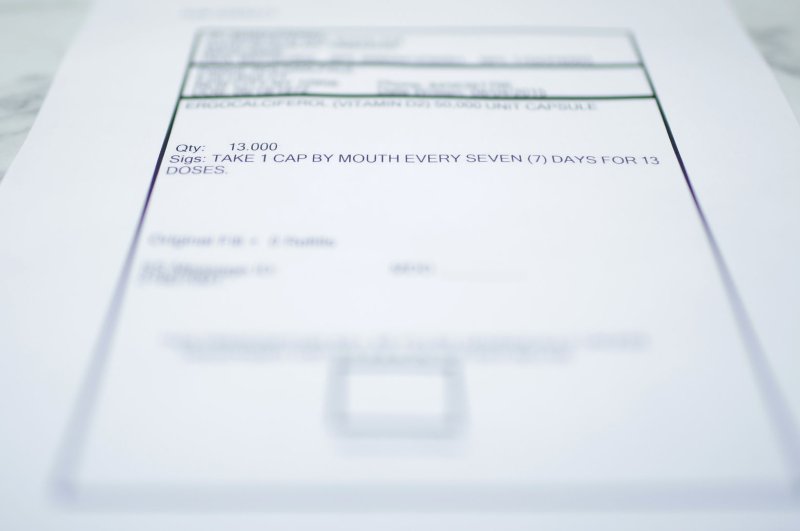A recent review found less than half of patients who were prescribed a new cholesterol lowering drug receive health insurance approval. File photo by John Angelillo/UPI |
License Photo
Oct. 30 (UPI) -- A recent review of U.S. pharmacy claims suggests that less than half of patients received health insurance approval for a new cholesterol-lowering drug.
The drug, a PCSK9 inhibitor marketed as Repatha or Praluent, lowers low-density lipoprotein, or LDL, commonly referred to as bad cholesterol, by removing it from the blood. The drugs have been shown to dramatically reduce LDL cholesterol by 60 percent, in addition to reducing the risk of cardiac events.
A study presented at the American College of Cardiology in March showed that participants taking Repatha along with a statin had an average LDL of 30, and in some cases an LDL of 19 or less. Researchers reported those participants had a 27 percent less risk of developing a heart attack, a 21 percent decreased risk of stroke and a 22 percent decreased risk of cardiovascular revascularization.
The efficacy of Repatha and other PCSK9 drugs has been proven, but the cost of the drugs are prohibitively expensive -- one year of treatment runs an average of $14,300.
The new study, published today in Circulation, found that less than half of patients with high cholesterol are having prescriptions for PCSK9 inhibitors approved by health insurance carriers.
"With the controversy surrounding whether or not these drugs were cost effective, we were anticipating that there might be some reluctance by insurance companies to cover these medications," Dr. Robert Yeh, director of the Smith Center for Outcomes Research in Cardiology at Beth Israel Deaconess Medical Center in Boston, said in a news release.
"However, we were surprised by the very high rate of rejection, even when prescribed to patients with known atherosclerotic cardiovascular disease, very high LDL levels and those who were intolerant of statins, for example."
Researchers reviewed pharmacy claims for 9,357 patients who were prescribed PCSK9 inhibitor drugs between July 2015 and August 2016, finding that 47 percent of patients were approved for the drug and 53 percent were rejected by their insurance company.
The type of insurance seemed to make a difference, researchers report, with the lowest approval rates coming from private insurance companies and the highest from Medicare.
"Whether or not we can agree on the cost-effectiveness of these drugs, I believe most would agree that one's access to medications should be driven primarily by the strength of the indications for the prescription as opposed to what drug plan you happen to carry," Yeh said.
"Better education for providers prescribing these medications and more uniform guidelines by insurers about what will and will not be covered are necessary to reduce the amount of administrative waste that is created to reject prescriptions for new medications."















